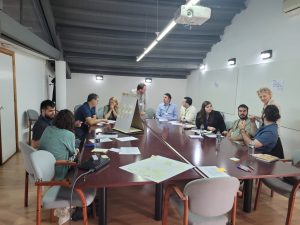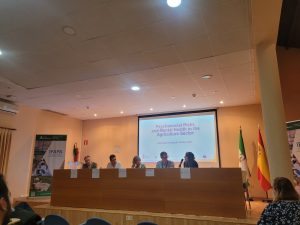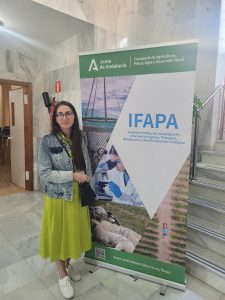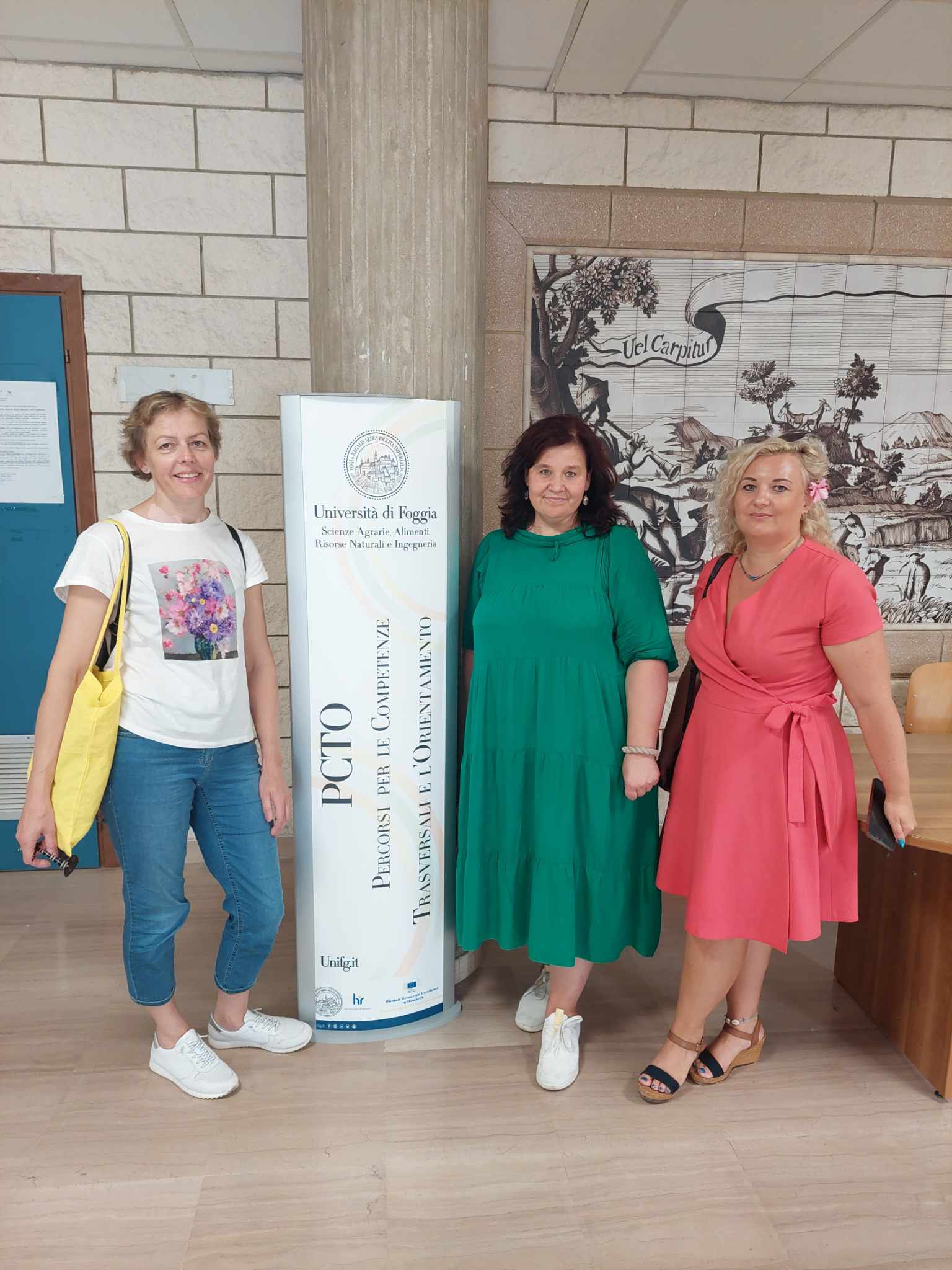VMU Agriculture Academy Autumn Intake 2025/2026 is open!
Would like to gain strong knowledge, solid skills, and invaluable international experience? Thinking about an unforgettable European student adventure and traveling the world?
Top-quality studies in a high-ranking university and living in Kaunas – located in the center of Europe – may be the perfect combination for You.
Your lifetime adventure can start now with Vytautas Magnus University (VMU) Agriculture Academy.
Application is open from December 1, 2024, for Autumn Intake 2025/2026 study programmes:
- Accounting and Finance / Учет и Финансы (BA)
- Logistics and Commerce (BA)
- Sustainable Engineering (BA)
- Agronomy (MA)
- Business Logistics (MA)
- Customs Process Management (online) (MBA)
- Aquamatics (MA)
- Hydraulic Engineering (MA)
- Ecology and Climate Change (MA)
APPLY HERE -> vytautasmagnus.dreamapply.com
DEADLINES:
- May 15, 2025
- For applicants from non EU/EFTA countries, except the countries listed below.
- July 1, 2025
- For applicants from EU/EFTA countries
- For applicants and citizens of visa-free countries: Albania, Argentina, Australia, Brazil, Canada, Georgia (Sakartvelo), Israel, Japan, Malaysia, Moldova, Mexico, New Zealand, Singapore, South Korea, United Kingdom, United States, Ukraine, and Venezuela.
Note: Please check if you need a visa to enter Lithuania here.
Note (!) Diplomas may be added after application deadline.
Note (!) Due to limited admission places, applications for autumn intake for the academic year 2025-2026 might be closed earlier. Spring (February) intake is not offered.
Information about Application and Admission Procedures
Information about Scholarships
Contact person: VMU Agriculture Academy International Coordinator Ekaterina Makrickiene ekaterina.makrickiene@vdu.lt, +370 37 752 386.
More information about VMU Agriculture Academy study programmes.
CONFERENCE “YOUNG SCIENTIST 2025”
The 22nd annual conference of young scientists “YOUNG SCIENTIST 2025” organized by the Vytautas Magnus University Agriculture Academy (VMU AA) will be held on April 10 2025 remotely. The conference is intended for the first, second and third degree students. The purpose of the conference is to involve students in scientific activities, develop the ability to publicize scientific research results, present their scientific research achievements and discuss topical issues of bioeconomy, green course, climate change, ecosystem sustainability, rational use and protection of natural resources.
There is no conference fee for students. Certificates of conference participants will be awarded to the speakers of the conference.
Speakers will be able to publish articles in the collection of articles of the conference “YOUNG SCIENTIST 2025”.
| Conference topics | Subtopics |
| Bioeconomy | Accounting and finance: challenges and opportunities |
| Bioeconomy, sustainability of agriculture and food sector | |
| Innovations and solutions in business logistics | |
| Management of agri-business and other bioeconomy business organizations | |
| Sustainable development of rural areas | |
| Biosystems engineering | Energy engineering |
| Land management | |
| Mechanical engineering | |
| Technology engineering | |
| Transport engineering | |
| Water engineering | |
| Sustainability of agricultural, forest, and water ecosystems | Agronomy |
| Food quality and safety | |
| Sustainability of agricultural ecosystems | |
| Ecosystem services | |
| Sustainable forestry | |
| Wildlife population management |
Pre-registration for the conference until February 15, 2025.
Articles for the conference “YOUNG SCIENTIST 2025” are accepted until March 14, 2025 (the link to upload the article). The articles must be prepared according to the recommendations for the authors of the articles (Annex 1 – Article template, Annex 2 – Authors guarantee letter).
The SafeHabitus Communities of Practice: Fostering safety culture for everyone working in the agricultural sector
Seville, Spain – October 2024 – Coinciding with the European Week of Safety and Health at Work, representatives from the 11 SafeHabitus Communities of Practice (CoPs) gathered in Spain this week for the SafeHabitus Autumn School. The three-day meeting gathered CoP representative, including experts on farm and occupational safety, researchers, and advocates for migration and labour rights to share best practices and exchange valuable knowledge to improve farm safety and health across Europe.
The Autumn School delved into two of the focus themes of the SafeHabitus project, migrant and seasonal workers and tractor and machinery safety. One of the central discussions focused on how corporate social responsibility can help create better working and living conditions for migrant workers in Europe’s agricultural sector Experts on the migrant and labour rights issues presented research and policy insights on the challenges these workers face. To give participants a real-world perspective, the CoPs visited a local farm that employs migrant workers and witness the work of the NGO ASNUCI (New Citizenship Association for Interculturality) providing support to the migrant workers in the province of Huelva in Spain.
The second day of the Autumn School shifted the focus to farm safety culture, specifically to machinery and tractor safety. Accidents involving machinery are one of the leading causes of injuries and fatalities on farms across Europe, making the safety culture a key element to mitigating this danger to all working and living on farms. After looking at the research on tractor safety on the examples of Spain and Ireland, the CoPs took to a practical session on tractor safety, showcasing tractor safety practices and exchanging knowledge on fostering a culture of safety on farms.
SafeHabitus Workshops was held on the last day of the Autumn School. Here the future of farming was shaped by Assessing implications for the attractiveness of farming and CoPs Presentation of draft actor maps was made.
Media contact: – National CoP representative Anastasija Novikova (Lithuania) anastasija.novikova@vdu.lt
More information:
About SafeHabitus:
SafeHabitus project is a four-year project coordinated by TEAGASC Ireland, funded by the European Union as part of the Horizon Europe Programme, grant agreement number 101084270. This multi-actor project aims to strengthen Farm Health and Safety Knowledge Innovation Systems (FHS KIS) and support the EU transition to social sustainability in farming.
GreenCool online workshop with stakeholders
Erasmus+ Blended Intensive Programme “MANAGEMENT FOR BUSINESS STARTUP’S: 2024 Summer course” in VMU Agriculture Academy
June 3 to 14, 2024, the Erasmus BIP course “Management of Business Startups, 2024” was held at the VMU Agricultural Academy. The course started with distance learning. Later, 21 students from 4 universities came for the Physical mobility part at the VMU Agriculture Academy. Partner universities, participated in this blended intensive program were Jegiellonian University (Poland), WSB Merito University (Poland), Latvia University of Life Sciences and Technologies and Estonian University of Life Sciences.
The aim of this course was to provide students with the knowledge and skills that would enable them to create their own business plan and be able to present it to interested parties (shareholders, bank representatives, co-workers or clients). This course combined various subjects: planning, organization, marketing, accounting, payroll, budgeting, etc. theoretical knowledge and practical abilities to plan and control business processes, motivate employees, predict business indicators important to shareholders and managers.
The virtual part of the course and theoretical lectures were held by 4 teachers – prof. dr. Gunta Grīnberga-Zālīte from Latvia University of Life Sciences and Technologies. assoc. prof. Janusz Sasak from Jegiellonian University, Paula Pyplacz from Czestochowa University of Technology and prof. dr. Jan Žukovskis from VMU Agriculture Academy.
During the course, students prepared business plans for their future enterprises. On the last day, they presented them to teachers and classmates. During the week in the afternoons, students went on the study tour to sustainable business “Farmers circle” and visited the old town of Kaunas.
The leader of the course: prof. dr. Jan Žukovskis (Faculty of Bioeconomy Development, VMU Agriculture Academy). Erasmus BIP coordinator Dr. Monika Medikienė.
![]()
Co-Funded by the European Union. Views and opinions expressed are however those of the author(s) only and do not necessarily reflect those of the European Union or the European Education and Culture Executive Agency (EACEA). Neither the European Union nor EACEA can be held responsible for them.
International project SKILLS at VMU Agriculture Academy – for a secured change in societal values and a greener future
The world’s challenging climate change, depleting resources and rising levels of environmental pollution are worrying signs that long-delayed changes to social, economic and environmental issues are imminent. With international organizations calling for real action as soon as possible, university researchers are starting with the most important steps – changing the attitudes and competences of future agricultural professionals and communities so that they can live well, not just now but in the future.
Encouraging society to move faster towards the Sustainable Development Goals
Dr. Vilma Atkočiūnienė, Professor at the Faculty of Bioeconomy Development, Agriculture Academy, Vytautas Magnus University, explains that to initiate change, the European Union (EU) has introduced the circular economy as a high-level as a high-level emerging global strategy. “This strategy includes the ambition for society to move beyond its current development towards the Sustainable Development Goals set out in the United Nations 2030 Agenda for Sustainable Development. This makes the circular economy a global strategy and a key priority for the EU to move away from today’s linear economy of production and consumption towards a sustainable use of resources,” she shares her insights on the important changes taking place and the goals for the future.
As a new paradigm, the circular strategy permeates all the processes of the agri-food sector, the activities of farming and local communities, rural landscaping and the natural environment. “Importantly, the transition to circular agriculture requires the implementation of a new governance model that encompasses all the main stages of the agri-food system: primary production, processing, food consumption, by-products and food waste”, says the researcher, noting that the transition to circular agriculture is not only a matter of technology and a significant restructuring of production, but also has a strong link to changes in societal attitudes and perspectives.
The change starts with updating the study programs
Prof. dr. Vilma Atkočiūnienė says that the idea of the SKILLS (Strengthening Key Competences in Agriculture for Value Chain Knowledge) project, which is being carried out by the scientists of the VMU Agriculture Academy together with international partners, is based on the improvement of green competences. “Among the objectives, the need to know the value chain, to promote sustainability, economic prosperity and social justice in the agricultural sector and in the use of natural resources have been identified as important challenges for the circular economy model. It is worth noting that the aim is not only to talk about the changes we want to see, but also to initiate them by channelling resources into active academic and practical activities,” the researcher shares her insights.
The project aims to raise public awareness of the new, sustainable Circular Economy. It also aims to raise awareness of a more efficient food supply chain. “The first step is to educate students, by updating the curricula of agricultural faculties in higher education institutions so that highly qualified graduates understand the importance of the circular economy and how it works. Theoretically sustainable solutions can create competitive advantages for companies and regions alike, so it is crucial that young qualified professionals have a good understanding of the circular strategy and a paradigm that is close to their values,” says Prof. Dr. V. Atkočiūnienė on the importance of education.
Aiming to initiate change across the agri-sector
The scientist says that this project is particularly important for the VMU Agriculture Academy community, as the main objective of the project is to contribute to the development of the competences of students, potential students and agricultural producers of agricultural products, by presenting and promoting the concepts of circular agriculture and green growth.
“The project aims to promote the modernisation of study programmes and the introduction of digital courses at the Faculty of Bioeconomy Development of VMU Agriculture Academy. The aim is to make digital courses more attractive to students, as well as to attract farmers, members of rural communities, and specialists from municipal Agriculture and Rural Development departments. In order for society to move beyond its current development and towards the sustainable development goals set out in the United Nations 2030 Agenda for Sustainable Development, as many people as possible in the sector need to be involved in the process of education and value change. It is not enough to instil sustainability and sustainable development values in students alone, as they will be confronted with older colleagues, communities and professionals who are slower to move towards the circular economy, or who are standing still when they finish their studies. By making it convenient for all those involved in the agri-sector and rural development to study and train, we are creating the conditions for a faster and more certain change in societal values,” says Prof. Dr. V. Atkočiūnienė.
She notes that implementing green solutions in practice faces different challenges in each country. And their implementation is becoming more individualised, depending on the natural, economic, cultural and social specificities of a country or region. “The SKILLS project has focused on finding and describing sustainable, environmentally friendly solutions, both as researchers and practitioners, with the aim of making them as easy as possible to implement. Despite the cultural and economic differences between the different project countries, it is easier for researchers to find common ground on concepts, principles and tools,” says the professor.
Aiming to change attitudes towards the agro-sector and rural development potential
Improving and modernising the curricula of universities and agricultural higher education institutions is crucial, she notes, as faculties in the field of agricultural and rural change management are facing declining enrolments. “On the one hand, the agricultural sector is rapidly modernising, with robotics, new farming strategies and the development and implementation of Smart Villages strategies. On the other hand, there is still a popular perception that agriculture is a less modern sector and that rural life is more complex, less interesting and less meaningful”.
Prof. Dr. V. Atkočiūnienė notes that this can be effectively changed by raising public awareness of the needs and development potential of agriculture and rural development, as well as the possible career opportunities for qualified professionals. She points out that during the pandemic, the agricultural sector was one of the least affected, as food production (including food raw materials and agricultural produce) must continue despite the challenges and extreme conditions that may arise in the future. According to the researcher, this demonstrates the resilience of the sector to challenges and the viability of those seeking broad and secure career opportunities.
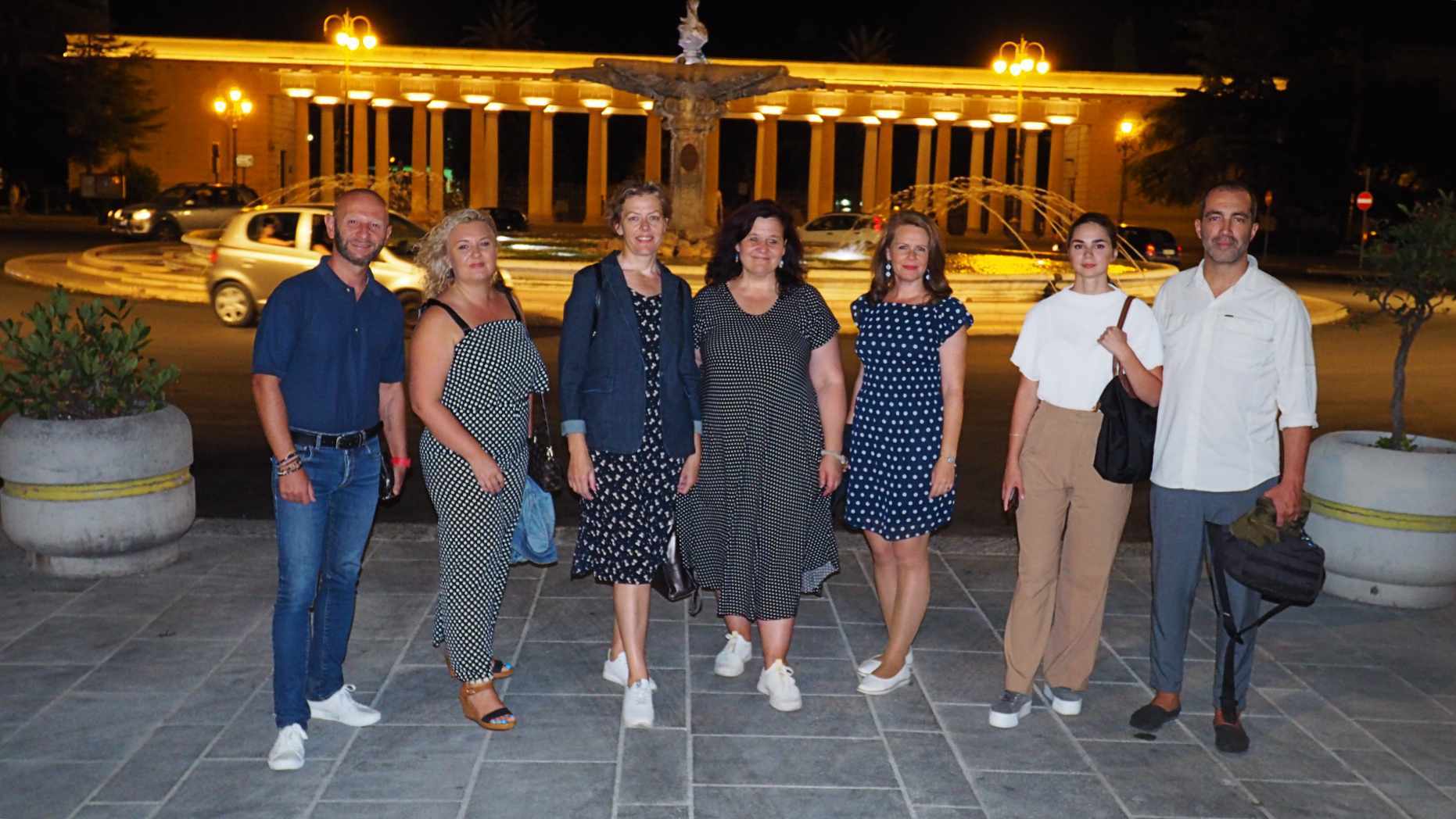 Opening up more career opportunities for future graduates
Opening up more career opportunities for future graduates
Prof. Dr. V. Atkočiūnienė emphasizes that this project contributes to important changes for the VMU Agriculture Academy community, especially for students. “Developing green competences, engaging young farmers, municipal professionals, community members and other rural and urban residents in the transition from a linear economy to a circular economy is important for the VMU Agriculture Academy Bioeconomy Development and other faculties. It opens up new opportunities for the creation of higher value-added jobs and broader employment prospects after graduation”, says the researcher about the importance of the project for the VMU Agriculture Academy community.
The SKILLS project promotes the concept of circular agriculture as a sustainable and resilient economic sector. “The SKILLS consortium aims to raise and accelerate awareness of circular agriculture among students and farmers, tourism and other economic developers. The outreach and education is based on a Study on the main challenges and potential of circular agriculture for employment, carried out by researchers from the Faculty of Bioeconomy Development of VMU, as well as on training material consisting of theoretical knowledge and practical exercises and a module – a set of digital courses – that will help agricultural and rural development professionals and beginners in farming to make a quicker transition to circular agriculture, to rethink their activities and to develop their green competences,” summarizes prof. Dr. V. Atkočiūnienė.
Extended application deadline for VMU AA Autumn Intake 2024/2025. Apply until July 12th!
Would like to gain strong knowledge, solid skills, and invaluable international experience? Thinking about an unforgettable European student adventure and traveling the world?
Top-quality studies in a high-ranking university and living in Kaunas – located in the center of Europe – may be the perfect combination for You.
Your lifetime adventure can start now. With VMU Agriculture Academy.
Application is open for Autumn Intake 2024/2025 study programmes:
Extended application deadline is July 12, 2024 for:
- Ukrainians
- Applicants from EU/EFTA countries
- Applicants and citizens of visa-free countries: Albania, Argentina, Australia, Brazil, Canada, Sakartvelo, Israel, Japan, Malaysia, Moldova, Mexico, New Zealand, Singapore, South Korea, United Kingdom, United States, Venezuela
- Applicants currently residing in Lithuania and holding valid TRP
Information about Application and Admission Procedures
Information about Scholarships
Contact person: VMU Agriculture Academy International Coordinator Ekaterina Makrickiene ekaterina.makrickiene@vdu.lt +370 37 752 386
More information about VMU Agriculture Academy study programmes
Join us at the 14th International Scientific Conference “Accounting and Finance for Business 2024: Towards Sustainability”!
We are pleased to announce the upcoming 14th International Scientific Conference “Accounting and Finance for Business 2024: Towards Sustainability” to be held online on 14-15 November 2024, hosted by Vytautas Magnus University (VMU) Agricultural Academy Faculty of Bioeconomy Development in Lithuania.
This conference will bring together thought leaders, researchers and practitioners from different countries to explore the central role of sustainability in accounting and finance. Our invited keynote speakers will address key issues such as the stock market’s reaction to the green initiatives of Italian SMEs and the huge potential of green finance. In addition, the conference will shed light on the professionalisation of accountants in post-communist environments and examine the evolving behaviour of taxpayers amidst digital business processes.
On the first day of the conference, we invite you to listen to the following keynote presentations:
- Giuseppe Galloppo (Italy), presentation “Green Initiatives and Stock Market Reaction of Italian SMEs”
- Nora Marija Laurinaityte (Lithuania), presentation “Unlocking the Potential of Green Finance”
- Nadia Albu (Romania), presentation “Professionalization of accountants in a post-communist setting”
- Zhelyo Zhelev (Bulgaria), presentation “Taxpayer behaviour in the context of digital business processes”
On the second day of the conference, there will be a panel discussion on ” Linking sustainability policy to future finance and accounting”, featuring presentations by Giedrė Padaigienė, Head of Sustainability for Swedbank Business Clients in Lithuania, and Ronaldas Kubilius, Head of the ESG team at PwC Lithuania. This session promises to provide valuable insights into the integration of sustainable practices in finance and accounting, as well as insights into strategic business decisions.
Register Now!
Early registration for oral and pre-recorded presentations, as well as abstract submissions, is open until July 5, 2024. Take advantage of the early registration fee of 20 EUR.
Standard registration for presenters until October 7, 2024. Registration fee of 40 EUR.
Registration for listeners until November 12, 2024 is free of charge.
Don’t miss this opportunity to be at the forefront of sustainable financial practices and innovation. Register today at https://afk.vdu.lt.
Graduation diplomas awarded to graduates of the VMU Agriculture Academy
On June 19, graduates of Vytautas Magnus University (VMU) Agriculture Academy were ceremoniously awarded diplomas for completing their bachelor’s and master’s studies. During the ceremony, representatives from VMU and VMU Agriculture Academy administration, teachers, social partners, and relatives wished the young professionals a successful career path as they start a new phase of life. The graduates expressed their gratitude to all those who supported them, provided knowledge, and guided them in the right direction.
“Today you have a ticket in your hands towards dreams, setting goals, and starting a new phase of life. We are extremely proud of you – you have every right to leave with your head held high as you have proven that you can balance academic challenges with personal goals. You leave with strong values, stronger, more persistent, and more patient. We are extremely happy that you chose us for this path, which was marked not only by victories, but also by tears, not only by joy, but also by moments of anxiety,” said the Rector of VMU, Prof. Habil. Dr. Juozas Augutis.
The Chancellor of the VMU Agriculture Academy, Prof. Dr. Astrida Miceikienė, encouraged the graduates to be courageous, pursue their dreams, and never stop believing in themselves. “This diploma is a symbol of your achievement. But it’s not the end, it’s just a new beginning. From now on, new challenges, new opportunities, and new achievements await you. It is important to remember that learning never ends. Life will teach you many lessons, and every day will be an opportunity to grow and improve. Don’t forget your values and the lessons you learned during these years,” said the Chancellor.
During the festive event, the deans and social partners of the Academy congratulated the graduates, who had successfully passed another stage of their lives.
Admission to PhD studies at VMU Agriculture Academy
Vytautas Magnus University (VMU) Agriculture Academy offers doctoral studies in 8 fields of research in natural, social, technological and agricultural sciences.
Application for admission to doctoral studies is carried online.
| Research Area | Research field | Dates of receipt of documents |
| Natural sciences | Ecology and Environmental Science | Will be available later |
| Technological sciences | Environmental Engineering | 01 05 2024 – 15 05 2024 (no later than 5 p.m.)* 05 06 2024 – 20 06 2024 (no later than 5 p.m.) |
| Mechanical Engineering | 01 05 2024 – 15 05 2024 (no later than 5 p.m.)* 05 06 2024 – 20 06 2024 (no later than 5 p.m.) |
|
| Transport Engineering | Will be available later | |
| Agricultural sciences | Agronomy | 24 04 2024 – 26 08 2024 |
| Forestry | 03 06 2024 – 23 08 2024 | |
| Social sciences | Economy | 03 06 2024 – 29 08 2024 |
| Management | 03 06 2024 – 29 08 2024 |
*Submission of documents for the recognition of qualification obtained abroad in Lithuania (for those applicants who have obtained their education at a foreign higher education institution and do not have a document confirming the recognition of their diploma in Lithuania)
The application for participation in the admission to doctoral studies and scanned copies of the necessary documents are provided online (online registration).
The application will be registered, when will be filled all necessary parts of Admission to doctoral studies online system epasirasymas.vdu.lt.
The application is considered not to be registered if all the necessary documents or information is not provided.
More information:
Research and Innovation department Doctoral School
Universiteto str. 8A-202, 53341 Akademija, Kaunas distr.
+ 370 37 752 254, +370 672 63856
monika.brimaite@vdu.lt
+ 370 37 209 815
doktorantura@vdu.lt
- About
- About Agri-Food BM programme
- Academic infrastructure units
- All events
- All news
- Aquaculture center
- Archives
- Biosystems Engineering
- Center of Animal husbandry selections, breeding values and dissemination
- Centre of Biosystems Engineering, Biomass Energetics and Water Engineering
- Circular Biobased Economy
- Climate change
- Contacts
- Contacts
- Events
- Events archive
- Faculties
- For business and society
- Innovative products
- International Cooperation
- International projects
- Joint Research Centre of Agriculture and Forestry
- Journal “Human and Nature Safety”
- Laboratory of Technology Safety
- Laboratory services
- Living Environment
- More labs
- News
- Project
- QUALS project description
- Research
- Research areas
- Scientific events
- Scope
- Sitemap
- Studies
- Study programmes
- Technology Transfer & Commercialization
- THE ROLE OF ORGANISATION IN THE PROJECT
- THE ROLE OF ORGANISATION IN THE PROJECT
- THE ROLE OF ORGANISATION IN THE PROJECT
- The Study Process
- Žemės ūkio žinių ir inovacijų sistemos klasteris





